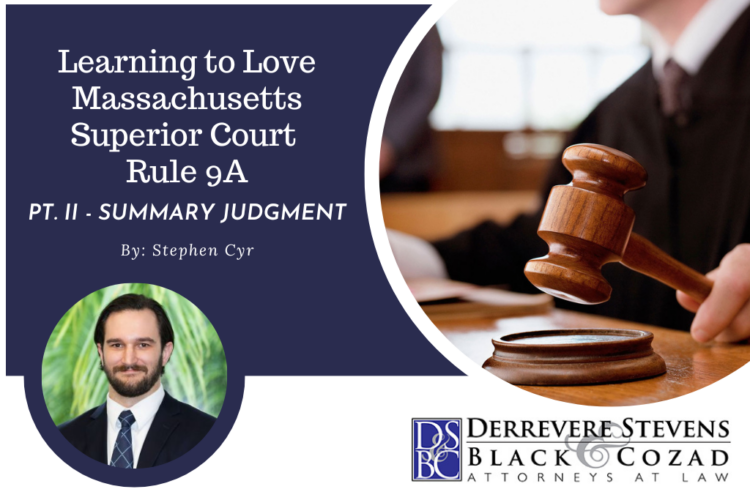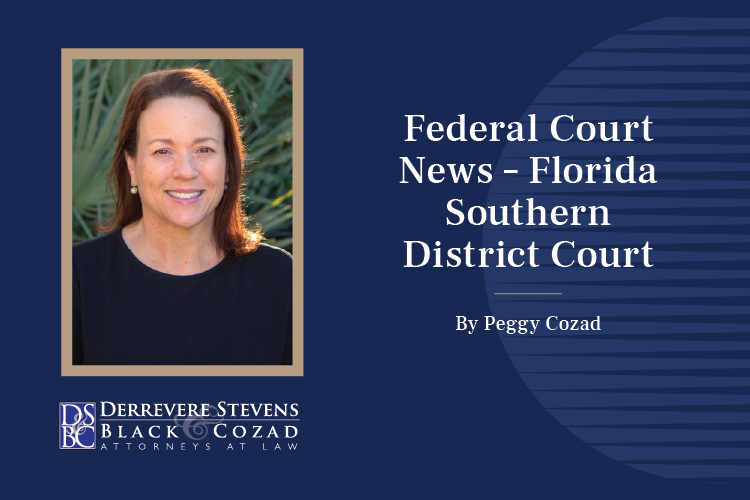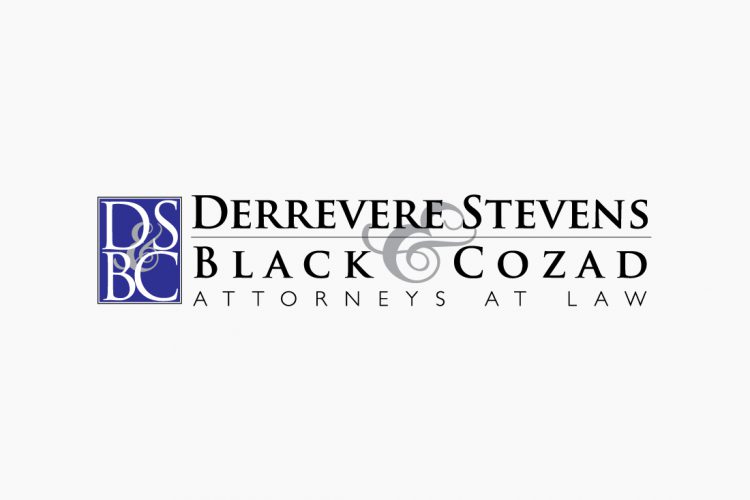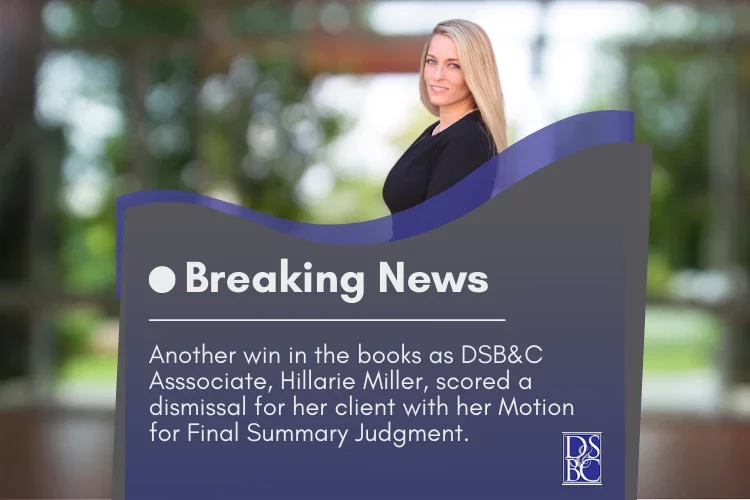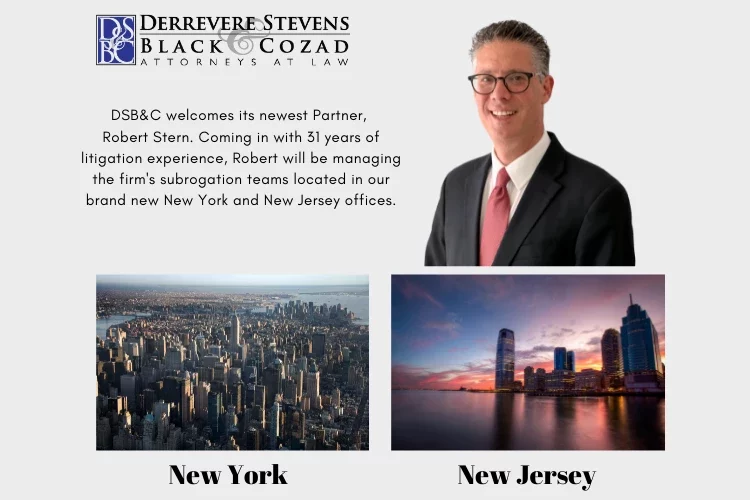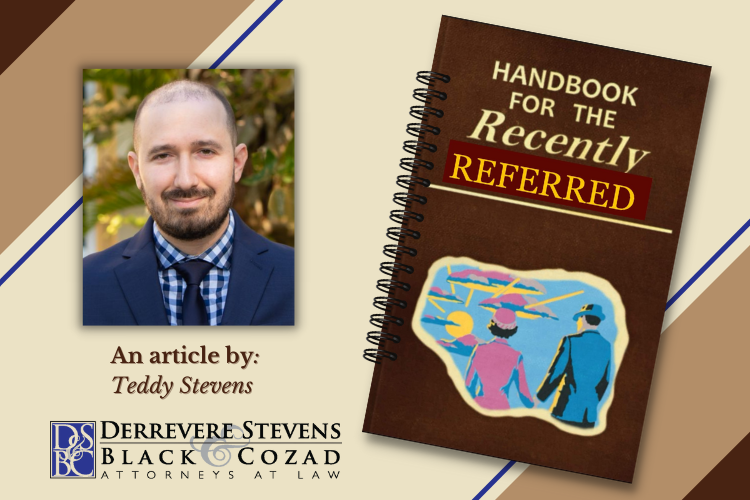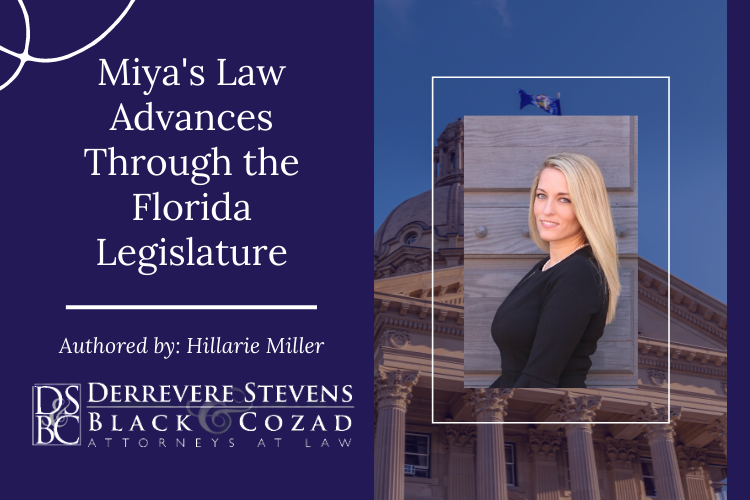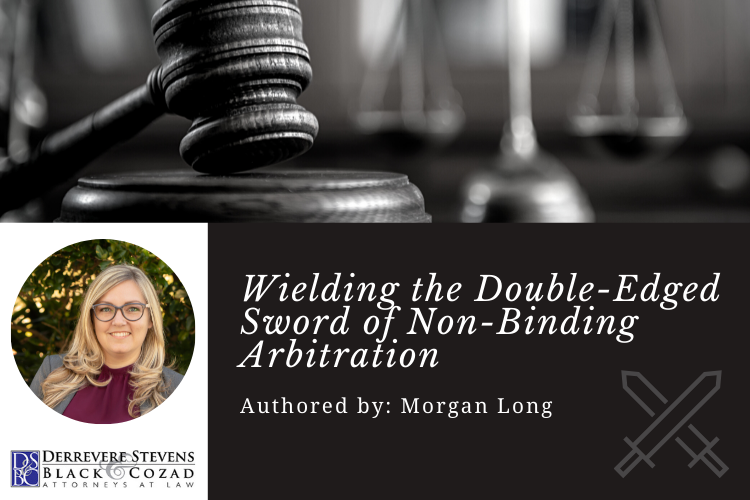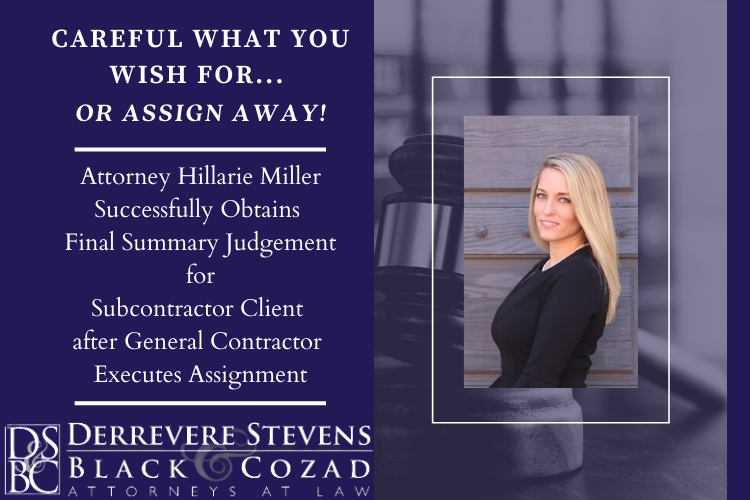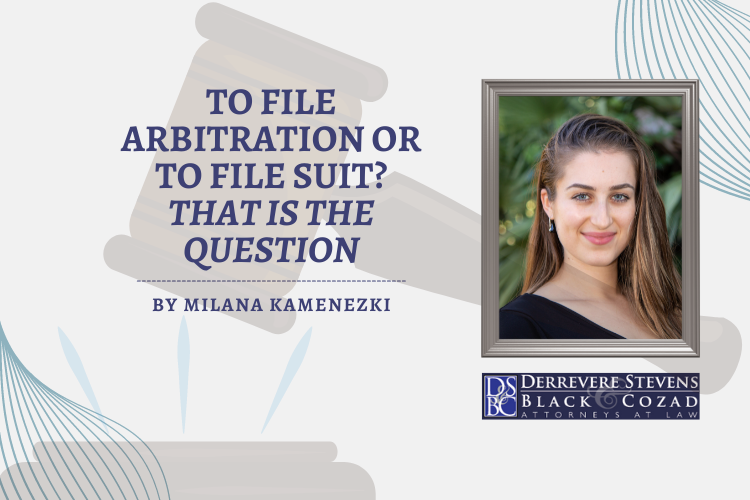October 12, 2022
Learning to Love Massachusetts Superior Court Rule 9A (Pt. II – Summary Judgment)
Massachusetts Superior Court Rule 9A is often the bane of many attorneys due to its length, complexity, and specificity. This blog post is a guide to filing/serving Summary Judgment Motions in the Superior Court.
September 21, 2022
Federal Court News – Florida Southern District Court
The lawyers at DSBC keep abreast of changes in Federal law to protect our clients’ interest in all aspects of litigation. Knowledge and compliance with the Rules leads to best practices and optimal client outcome.
July 1, 2022
Bryan Black Successfully Defends Client in Million Dollar Arbitration Claim
DSB&C Partner, Bryan Black, successfully defends his client in a million dollar arbitration claim.
June 9, 2022
Hillarie Miller Scores Another Dismissal via Motion for Summary Judgment
Another win in the books as DSB&C Associate, Hillarie Miller, scored a dismissal for her client with her Motion for Final Summary Judgment.
May 31, 2022
DSB&C Welcomes Robert Stern
Robert A. Stern has joined Derrevere Stevens Black & Cozad (“DSB&C”) as a Subrogation Partner, and will manage its New York and New Jersey offices. Robert was formerly a shareholder, Board of Director and Chair of Clausen’s Miller’s Subrogation group. Robert presently serves as Vice President of the National Association of Subrogation Professionals.
April 11, 2022
A Guide for the Rush Assigned Subrogation Loss
The ability to make a recovery is directly tied to how efficiently and effectively the subrogation process is handled on a new loss. If the proper steps are not taken, it is very likely that any chance of a subrogation recovery will be lost.
March 28, 2022
Miya’s Law Advances Through the Florida Legislature
A bill is advancing through the Florida Legislature which proposes to place onerous requirements on apartment complex landlords to protect tenants from the threat of violence posed by employees with criminal histories.
January 31, 2022
Wielding the Double-Edged Sword of Non-Binding Arbitration
Many, if not all, Uniform Trial Orders include a mediation requirement. Increasingly, some judges have also been uniformly ordering cases to non-binding arbitration as an alternative method of resolution. Non-binding arbitration can be both a blessing and a nuisance.
January 18, 2022
Attorney Hillarie Miller Successfully Obtains Final Summary Judgement for Subcontractor Client
This action arose out of the construction of four townhomes in Bay Harbor Islands (the “Project”). The Owner/Developer entered a Prime Contract with the General Contractor, who subsequently entered various contracts with numerous Subcontractors, including the Client.
January 17, 2022
To File Arbitration or To File Suit? That is the Question
Arbitration Forums, Inc. (“AF”) was founded in 1943 and is a membership-driven, not-for-profit organization. Many insurers are signatories to agreements that provide for arbitration. This means that the insurers agree to submit any applicable claim that may arise between them to AF and agree to forego litigation.

